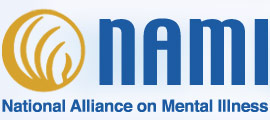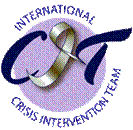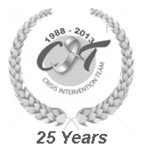Developed by faculty from the Dartmouth Medical School
Available from Hazelden Publishing, September 2008
An integrated system of mental health and addiction services that emphasizes continuity and quality is in the best interest of consumers, providers, programs, funders, and systems.
– Co-occurring Center for Excellence (SAMSHA)
In recent studies, researchers estimate that about half of the people treated in mental health settings have at least one substance use problem in their lifetime, if not within the past year. Approximately 25 to 33 percent of the people treated in mental health settings have experienced substance use problems either currently or within the past year. In addiction treatment settings, these estimates are similar if not higher. As many as 50 to 75 percent of people in addiction treatment centers also suffer from a psychiatric disorder, some with chronic disorders.
As the above quote from SAMSHA’s Overview Paper #3: Overarching Principals to Address the Needs of Persons with Co-occurring Disorders affirms, over 20 years of research has settled the old question of which of these disorders should be treated as primary by demonstrating that integrated treatment, which treats both disorders concurrently, offers the best possible outcomes for clients and client’s families. The Co-occurring Disorders Program, to be published by Hazelden in September 2008, offers a comprehensive, manualized system that supports evidence-based, integrated treatment for these disorders.
The Dartmouth Psychiatric Research Center developed and tested the Integrated Dual Disorder Treatment (IDDT) model, which is now an established evidence-based practice designed for people with severe mental illness (SMI). Drawing upon the numerous randomized controlled trials testing the IDDT model, as well as the rapidly accumulating evidence for practices with co-occurring substance use and non-SMI disorders, the Co-occurring Disorders Program represents the state-of-the-science in treatment approaches for people in addiction treatment settings. Since the evidence base for co-occurring disorders in addiction treatment exists on a continuum, each component of this Program will describe the scientific status of the various treatment approaches, from investigative to promising to established practices. In some components, careful adaptations of evidence-based approaches, for example the family education approach, are made in order to be relevant for the non-SMI client in an addiction treatment program.
The therapeutic interventions documented in this Program are primarily drawn from current best practices in cognitive-behavioral therapy, motivational interviewing, and Twelve Step facilitation. These materials have been developed within the context of addiction treatment programs treating clients either individually or in groups, but are equally useful when applied in a mental health program that would like to offer integrated treatment for co-occurring disorders. The package includes all the support tools necessary to implement an integrated treatment program to fulfill the needs of administrators, clinicians, patients, family members, team members, and other stakeholders.
The seven components of the Co-occurring Disorders Program are designed for use with adult patients, as well as their family members, who are participating in a residential or outpatient treatment and/or mental health program for substance use and non-severe mental health disorders. The program components listed below, include a manual, five 3-ring binder curricula with CD-ROMs, and a DVD.
Program Manual: Clinical Administrator’s Guidebook
This perfect-bound manual contains complete instructions for implementing the Co-occurring Disorders Program. The guidebook is for a mental health or addiction treatment organization’s director, board of directors, CEO, CFO, and other key agency leaders. This guidebook offers all the tools a clinical administrator needs to assess the seven key areas of organizational effectiveness, including the policy, practice, and workforce benchmarks needed to deliver the best possible services to persons with co-occurring disorders. The Clinical Administrator’s Guidebook also contains a valuable organizational assessment guide, which outlines the steps needed to assess and improve services offered to patients with co-occurring disorders. Links to resources about co-occurring disorders, a sample charter agreement and DDCAT implementation plan, and other materials are included on the accompanying CD-ROM.
Curriculum One: Screening and Assessment
The first of the five curriculum components is a must-use tool that helps clinicians evaluate patients with an effective, protocol-driven method so that appropriate treatment options can be addressed with regard to each patient’s symptoms, history, and motivation to change. Included are specific measures for screening, assessment, differential diagnostics, and stage of motivation to address and treat both addiction and psychiatric problems in patients. Screening and Assessment comes with a bound clinician’s guide and a CD-ROM with reproducible patient handouts packaged in a three-ring binder.
Curriculum Two: Cognitive-Behavioral Therapy
The second curriculum utilizes cognitive-behavioral therapy (CBT) principles to address the most common psychiatric problems in addiction settings: depression, anxiety disorders, bipolar disorder, social phobia, and post-traumatic stress disorder (PTSD). Adaptations of CBT are an evidence-based practice for treating substance use disorders and most psychiatric disorders. Research shows that CBT is useful for treating non-severe co-occurring psychiatric disorders in an addiction treatment setting. Psychosocial treatments, particularly CBT, are equally, if not more, effective for the psychiatric disorders that most commonly occur with substance use disorders. Research with CBT for persons with co-occurring disorders has been highly specialized by the specific co-occurring disorder. Until now, providers had no one manual or practice to implement in real-world settings where patients have a variety of these disorders. Cognitive-Behavioral Therapy includes a bound clinician’s guide and a CD-ROM with reproducible patient handouts packaged in a three-ring binder.
Curriculum Three: Integrating Combined Therapies
The third curriculum utilizes a combination of motivational enhancement therapy (MET), cognitive-behavioral therapy (CBT), and Twelve Step facilitation (TSF) therapy. Each of these models of therapy has been proven successful when used in community addiction treatment programs. There is a growing consensus that these practices are effective if delivered singularly to patients, but are even more effective if rationally combined based on stage of motivation, problem pattern and severity, and patient preference. We can think of MET as serving the role to engage change, CBT working to assist change, and TSF as a proven model to sustain change and elaborate upon it. Each of these evidence-based practices is described here with appropriate modifications for persons with co-occurring disorders. This curriculum will enable a clinician to successfully deliver these evidence-based substance dependence treatment therapies to patients with co-occurring disorders, resulting in greater positive outcomes for clients. Integrating Combined Therapies comes with a bound clinician’s guide and a CD-ROM with reproducible patient handouts packaged in a three-ring binder.
Curriculum Four: Medication Management
The fourth curriculum is a valuable resource for medical directors and clinicians. It contains vital, current information about the complex issues of medication management, including medication compliance and other psychological concerns of the patient. Issues of differential diagnosis, timing, indications, monitoring, dosage, tolerance and withdrawal, and other topics are considered in this component. Current evidence and consensus-based practices are provided to enable providers to make clinical decisions about medications and their prescription. While many people in peer support groups take psychotropic medication, stigma can still cause some to hide their medication use from others. These issues, and information about the benefits and risks of medications, are also addressed for the patient. Medication Management comes with clinician’s instructions and a CD-ROM with reproducible patient handouts packaged in a three-ring binder.
Curriculum Five: Family Program
The fifth curriculum helps clinicians involve patients with co-occurring disorders and their family members in an integrated treatment approach.First, family members, including the patient,meet to learn about the patient’s specific psychiatric disorder andhowit interacts withthe substance use disorder. Then, the family joins other families in a 12-week program of education on such topics as managing cravings, effective communication, using medications, and preventing relapses. The Family Program component includes a bound clinician’smanualand a CD-ROM with reproducible patient handouts packaged in a three-ring binder.
Program Video: Hope and Healing for Co-occurring Disorder Patients and their Families
This 90-minute DVD educates patients and families on the treatment of co-occurring disorders. It provides an educational overview of co-occurring disorders, offers interviews from people who have them, and discusses ways that patients can participate in treatment to better manage their recovery from both disorders. Included are dramatic vignettes as well as professional narration to show a comprehensive look at all the issues of recovery. Clinicians can use this DVD when implementing all seven components of the Co-occurring Disorders Program or as a stand-alone with the Family Program.
Implementation training developed by Hazelden and the faculty of Dartmouth Psychiatric Research Center to help treatment and mental health centers develop greater capacity, skills, and processes to treat non-severe mental health patients with substance use disorders will be available when the Program is released in September 2008.
Pricing and ordering information for Co-occurring Disorders Program and the implementation training will be announced in April 2008.
About the Authors
Mark McGovern is an associate professor of Psychiatry and of Community and Family Medicine at Dartmouth Medical School. Dr. McGovern specializes in the treatment of co-occurring substance use and psychiatric disorders and practices through the Department of Psychiatry at Dartmouth-Hitchcock Medical Center. In July of 2004, he received a five-year career development award from the National Institute on Drug Abuse. The overarching goal of this award involves developing, testing, and transferring evidence-based treatments to community settings for persons with co-occurring substance use and psychiatric disorders.
Robert E. Drake, M.D., Ph.D., is the Andrew Thomson Professor of Psychiatry and of Community and Family Medicine at Dartmouth Medical School and the director of the Dartmouth Psychiatric Research Center and is currently vice chair and director of research in the department of Psychiatry. He works as a community mental health doctor and researcher. His research focuses on co-occurring disorders, vocational rehabilitation, health services research, and evidence-based practices. He directs four national studies of quality improvement, and he has written fifteen books and over 360 papers.
Matthew Merrens, Ph.D.,< is codirector of Dartmouth Evidence-Based Practices Center and visiting professor of Psychiatry at Dartmouth Medical School. He received his Ph.D. in clinical psychology at the University of Montana and was formerly on the faculty and chair of the Psychology Department at the State University of New York–Plattsburgh. He has extensive experience in clinical psychology and community mental health and has authored and edited textbooks in the psychology of personality, introductory psychology, the psychology of development, and social psychology. He recently published a book on evidence-based mental health practice.
Kim T. Mueser, Ph.D., is a licensed clinical psychologist and a professor in the Department of Psychiatry and the Department of Community and Family Medicine at the Dartmouth Medical School . Dr. Mueser’s clinical and research interests include integrated treatment for co-occurring psychiatric and substance use disorders, rehabilitation for persons with severe mental illnesses, and the treatment of post-traumatic stress disorder. He has published several hundred journal articles and has coauthored or edited ten books.
Mary F. Brunette, M.D., is an associate professor of Psychiatry at Dartmouth Medical School. She conducts research on services and medications for people with co-occurring substance abuse and serious mental illness at Dartmouth Medical School. She also is medical director of the Bureau of Behavioral Health in the New Hampshire Department of Health and Human Services. She has published over thirty articles in peer-reviewed journals, many related to medication treatment for people with co-occurring disorders. She speaks nationally on this topic.
Richard Hendrick, who produced the DVD, is a television writer, producer, and director and an educator. He has created award-winning productions for PBS, Turner Broadcasting, and A&E, among others. He taught for many years at Dartmouth College, including courses in developmental psychology, educational technology, and television and children, and has also lectured at Harvard Graduate School of Education, Columbia University, Bank Street College, and the University of Siena in Italy.






